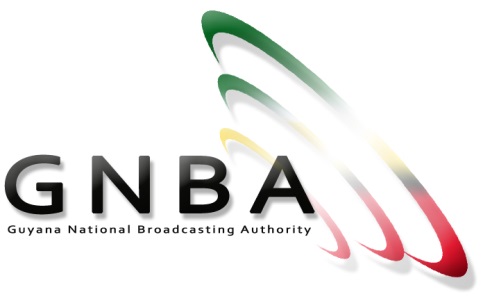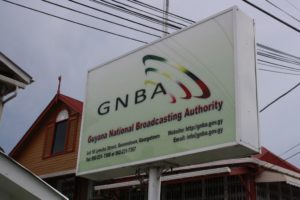This is the most progressive and sincere regulatory effort since independence- Leonard Craig
– Letter to the Editor
Dear Editor,
As one of the principal contributors to the shaping of the Broadcasting Amendment Bill (BAB) of 2017, I think it is necessary that I add my voice in an effort to proffer added context to the current debate surrounding its recent passage. It seems that the provision requiring Broadcasters to set aside one hour per day towards Government PSAs is the main source of discontent. Indeed, this provision is susceptible to misuse and given history of abuse of public information space over the last decade and a half it is not entirely unexpected that stakeholders will feel some disquiet.
In expressing this disquiet, it is hoped that none is so blind not to see that some of these new-found outbursts of abhorrence are laced with a generous brew of hypocrisy and guile. Several provisions requiring PSAs be aired have been part of the Broadcasting Act since 2011 and in a Bill that predated the Act by at least 2 years. Today all sorts of social creatures muted since then have emerged like gully creepers to gambol about the death of press freedom. I wish to ask, where were these badgers, who are now beating the drums of fear in cadences of vice and wailing their duplicitous death knell, these past 9 years? In principle, I support the sections requiring PSAs be aired free of cost however, I would have much preferred 30 mins per day instead of 60.
Having said that, I do not think either the government or the GNBA have offered sufficient context to assist in explaining why the BAB 2017 took its current shape. I therefore tender some additional insights for public consideration. 1. The BAB 2017 which modifies the BA 2011 is not intended to be a “stand alone” legislation in and of itself. It is proposed to be accompanied by guidelines, codes and a raft of regulations along with additional conditions attached to individual licenses all of which, after having been gazetted, will carry the force of law.
In this regard, the Act is merely an overarching framework and the other forms of legislation are intended to direct (both broadcasters and the GNBA) how these actions were to be fulfilled. For instance, the guidelines are supposed to detail further characteristics of PSAs e.g. No advertising of products, no promotion or mention of political eras or political parties or any other individual organization, no comparison of political performance etc. Further, these guidelines are supposed to provide context and mechanisms for sanctions e.g. setting out categories of offences from mild to severe and sanctions from written reprimand to suspension or revocation. In this vein, the government cannot just rack up any old political campaign speech and submit it to be aired as PSAs.
In filing an objection with the GNBA the Broadcaster can delineate the specific breaches as per subsidiary law. 2. Compulsory PSAs are a feature of many modern free open and progressive societies all around the world and it is preposterous to suggest that Guyana is so unique that it cannot utilize aspects of legislations, norms and practices of nations with whom we share similar legal and historical framework. 3. Some of the most progressive/advanced models of Broadcasting legislations around the world continue to be a work in progress and are modified, in some cases, multiple times per year to suit the changing shapes of technology and new challenges arising there from.
At the conception stage, this was taken into consideration and it was felt that the BA and its attending subsidiaries would go through several unavoidable changes during the imminent switch over to digital broadcasting. Therefore, there are many opportunities for adjustments and retuning, the BAB 2017 was not intended to be a one off, once-and-for-all, solution. 4. Even 5 years after the coming into force of the BA 2011 and the existence of the GNBA, broadcasting remains heavily under-regulated and it is high time the government stop paying lip service to sector reforms. The measures employed (in their current form) are both imperative and immediate. 5. Societies with a voluntary PSA system have strong Broadcasters and/or Motion Picture Associations with both hard and soft self-sanctions and self-regulations which Broadcasters generally need to adhere as a condition of their license. As it stands, Guyana has no functioning association of broadcasters which can be referred to in regulations.
Therefore, in its place, a definitive written provision needs to be made and not until such time that broadcasters are able to form themselves into a viable association with written rules for self-regulations will there be need to remove such provisions from the law. In societies with voluntary standards broadcasters must upon application for renewal of license prove that they met the minimum standards for airing PSAs as set out by their own Association. I do not know of any jurisdiction where airing of PSAs is entirely at the whim of individual broadcasters. At the time of assumption of the Chairmanship of GNBA I made available to the public a written vision statement in it is a stated aim to instigate the creation of an Association of Broadcasters.
I am deeply aware and appreciative of the pivotal role it should play in regulating broadcasting. As far as I am aware that is still a goal of the GNBA and by extension the Government of Guyana. 6. During the time of crafting the main provisions of the BAB 2017, the prevailing conviction was that the present government is not averse to the idea of the state gradually getting out of the broadcasting business. In the likelihood of this reality it will therefore be untenable that a Government is left without unhindered access to the national airwaves to directly communicate its programs and policies to the general population. 7.
After assuming the Chairmanship of the GNBA in 2015, it was found that the Authority was without any documented or Board approved financial regulations, Human Resource policies or any other administrative policies. In fact, the Board did not even have Rules of Procedures, required by law, to govern its own conduct and operation. There were no GNBA sponsored broadcasting codes or guidelines completed or in progress, apart from the Broadcasting Regulations of 2014 governing fee structure there were no other regulations in progress, there were no systematic written policy for judging applicants based on merits and licenses were issued without substantive additional conditions – it was a chaotic no holds barred situation. The broadcasting landscape (and the Authority itself) was being regulated through an I-say-so scheme.
At the time of leaving, all the aforementioned things were in an advance stage of preparation due mainly to my initiation. I admit that the current legislative framework is not perfect and needs several rounds of updates but given all the militating circumstances that currently exist, the recent passing of the BAB 2017, and its attending in-progress subsidiaries, is the most progressive and sincere step ever made towards real and impartial regulation of the Broadcasting sector since independence.
Leonard Craig
Letter to the Editor – Kaieteur News


